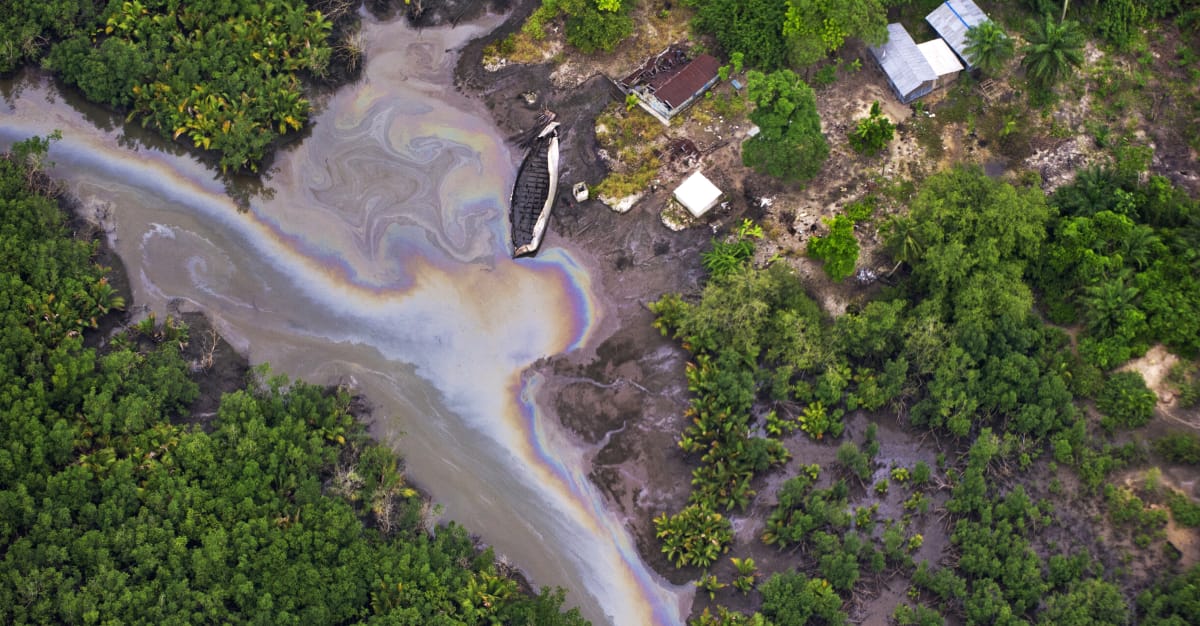Oil Exploration's Hidden Toll: The Air Quality and Respiratory Health Crisis in Nigeria
Published on 29 Jan, 2025

While Nigeria's South-South region bears the direct burden of oil exploration, its environmental impact reaches far beyond, affecting air quality even in the nation's industrial and commercial hubs. As the C²REST Nigeria Study (2024-2027) begins its comprehensive investigation into climate change and respiratory health impacts in Lagos and Ogun states, understanding the far-reaching effects of oil exploration activities becomes crucial - even in regions seemingly distant from oil fields.
The Scale of the Challenge
Nigeria stands as the 15th largest oil-producing nation globally, operating 15 pipelines and producing over 1.5 million barrels of crude oil daily. While this achievement drives 90% of the country's total exports and 70% of budget revenues according to the World Bank, it carries a devastating environmental and health burden that the C²REST study aims to quantify and address.
The Hidden Cost of Exploration
Oil exploration's impact on air quality extends far beyond the visible evidence. Each phase of the process - from geophysical exploration to drilling and production - releases a complex cocktail of pollutants into the atmosphere:
- Volatile Organic Compounds (VOCs)
- Fine Particulate Matter (PM10 and PM2.5)
- Methane
- Nitrogen Oxide
- Sulfur Dioxide
Gas Flaring: A Critical Concern
Nigeria's position among the world's top 8 gas flaring nations adds another layer to this crisis. The practice of burning or directly releasing natural gas into the atmosphere significantly impacts air quality and climate change - a key focus area of the C²REST Nigeria Study's research into environmental factors affecting respiratory health.
The Respiratory Health Crisis
The C²REST study's mission to understand and address the impact of climate change on respiratory health in Lagos and Ogun states reveals how even regions distant from oil production sites face significant respiratory health challenges. Air pollution doesn't respect geographical boundaries, and residents across these states face increasing risks of:
- Lung Cancer
- Chronic Pneumonia
- Asthma
- Bronchitis
- Chronic Obstructive Pulmonary Disease (COPD)
These conditions, now the third leading cause of death globally, have reached pandemic proportions in Nigeria, particularly in communities near oil exploration sites.
Environmental Cascade Effects
Oil exploration's impact extends beyond direct air pollution, creating a cascade of environmental challenges that the C²REST study aims to investigate:
- Climate Change: Increased greenhouse gas emissions
- Ozone Layer Depletion: Affecting atmospheric protection
- Global Warming: Rising temperatures
- Acid Rain: Impacting both environment and health
- Biodiversity Loss: Disrupting natural ecosystems
Research and Community Impact in Lagos and Ogun States
The C²REST Nigeria Study's comprehensive approach in Lagos and Ogun states demonstrates how industrial activities, including the downstream effects of oil exploration, impact urban and peri-urban communities. The study includes:
- Personal Exposure Monitoring: Tracking individual exposure to air pollutants in affected communities
- Community Engagement: Understanding local experiences and building resilience
- Long-term Health Impact Assessment: Following communities over time to document health outcomes
- Policy Development: Working towards evidence-based solutions
Looking Forward: Solutions and Strategies
While the C²REST study focuses on Lagos and Ogun states, its findings will have broader implications for understanding how industrial activities, including oil exploration's downstream effects, impact respiratory health in urban and peri-urban areas. As the study progresses, its findings will be crucial in:
- Identifying High-Risk Areas: Mapping communities most affected by oil exploration-related air pollution
- Developing Interventions: Creating targeted strategies to protect respiratory health
- Informing Policy: Providing evidence-based recommendations for sustainable oil exploration practices
- Building Community Resilience: Empowering local communities with knowledge and tools for protection
A Call for Balance
While oil exploration remains vital to Nigeria's economy, the C²REST Nigeria Study's research underscores the urgent need to balance economic benefits with public health protection. Through comprehensive research and community engagement, we can work towards solutions that protect both Nigeria's economic interests and the respiratory health of its people.
The path forward requires collaboration between industry stakeholders, health professionals, and communities - exactly the kind of multi-stakeholder approach that the C²REST study champions. Only through understanding the full scope of oil exploration's impact on respiratory health can we develop effective, sustainable solutions for Nigeria's future.
